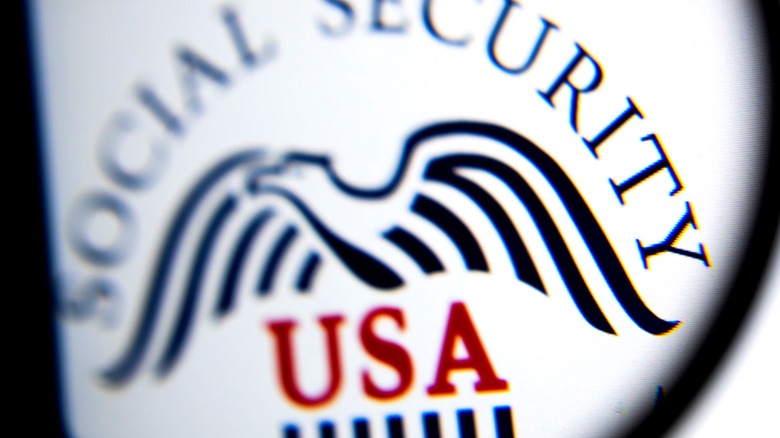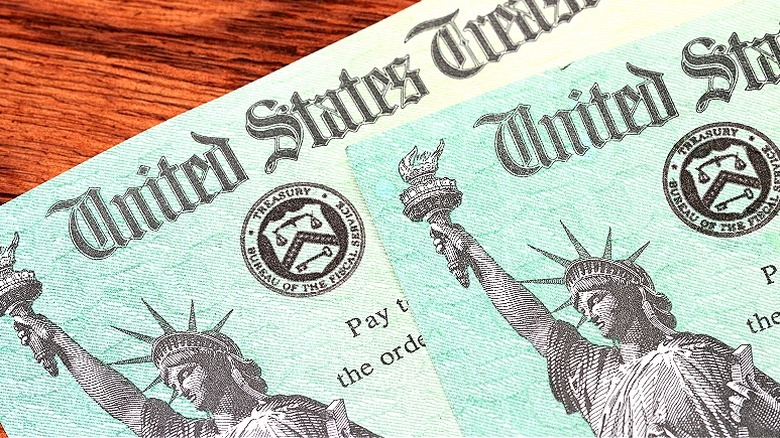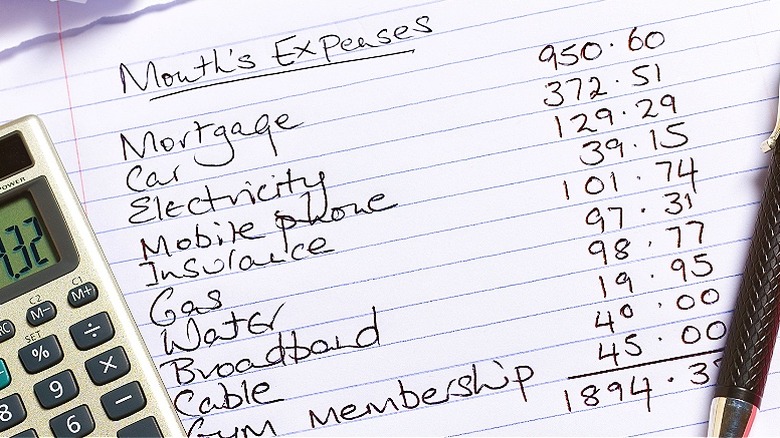Why Some Americans Will Get An Extra Social Security Payment In November
Extra income is always a welcome thing; however, in the case of Social Security's Supplemental Security Income, "extra" might be a double-edged sword. You may have heard some excited chatter about some Americans getting an extra Social Security payment come November. But pause before you start planning that extra weekend away or offer to pay more for Thanksgiving dinner this year. November's "extra" Social Security payment is really an early Social Security payment — or Social Security Supplemental Security Income (SSI) check, to be exact. SSI is a type of Social Security benefit paid to low-income disabled, blind, and qualifying individuals aged 65 or older.
The Social Security Administration has a specific schedule it follows for disbursing payments to beneficiaries and recipients. Due to aspects of that schedule lining up a certain way in 2024, it means some SSI recipients will receive two benefit payments in November, but none in December.
"We do this to avoid putting you at a financial disadvantage and make sure that you don't have to wait beyond the first of the month to get your payment," Stephen McGraw, acting deputy associate commissioner at the Office of Strategic and Digital Communications, explained in Social Security Matters, a Social Security Administration publication. Beyond November 2024, though, here's how to know — and plan for — any such instances of two SSI checks in one month and none the next.
There are no pay dates on weekends or holidays
Typically, Supplemental Security Income payments go out on the first of every month. However, when the first of a month falls on a weekend or a holiday, benefits are paid on the previous Friday instead. December 1 falls on a Sunday in 2024, so the payment that would normally be sent out that day will actually be sent out the prior business day. In this case, that's Friday, November 29.
December isn't the only double-payment month for SSI benefits in 2024, as double payments also occurred in May and September. Double payments will feel like they continue straight on through to 2025 as well. According to the Social Security Administration's payment calendar, double-payment months are scheduled for January, February, April, and July 2025.
If your Social Security or SSI payment is ever late in arriving, the Social Security Administration advises you to wait three additional mailing days before reaching out. To report a missing payment, you can either call Social Security toll-free at 1-800-772-1213 (TTY 1-800-325-0778) or you can visit your local Social Security office to create a case.
Budgeting for SSI benefits and lack thereof
Getting your Supplemental Security Income benefits before rent and bills are due is a relief, but budgeting for an erratic payment schedule might not be. While all SSI recipients will receive their full benefits throughout the calendar year, the disbursement periods can be tough to manage without careful budgeting. For the months when no SSI payment arrives, you'll need to plan ahead, and for multiple-payment months, you'll need to stay disciplined in your spending. This can prove tricky, because recipients of SSI benefits are likely already balancing schedules for other programs and assistance.
However, when budgeting, simply start by writing everything down, as it's easy to forget to put certain monthly expenses in a budget. Make sure you mark your calendar for incoming payments, outgoing payments, and identify any other monthly and major expenditures, as well as bill-pay dates. Determine how you will spend your SSI payment(s) on these bills and needs before you receive it; doing so will give you a better idea of how much of a buffer you'll have after doing so (for those months when no SSI payment arrives).


